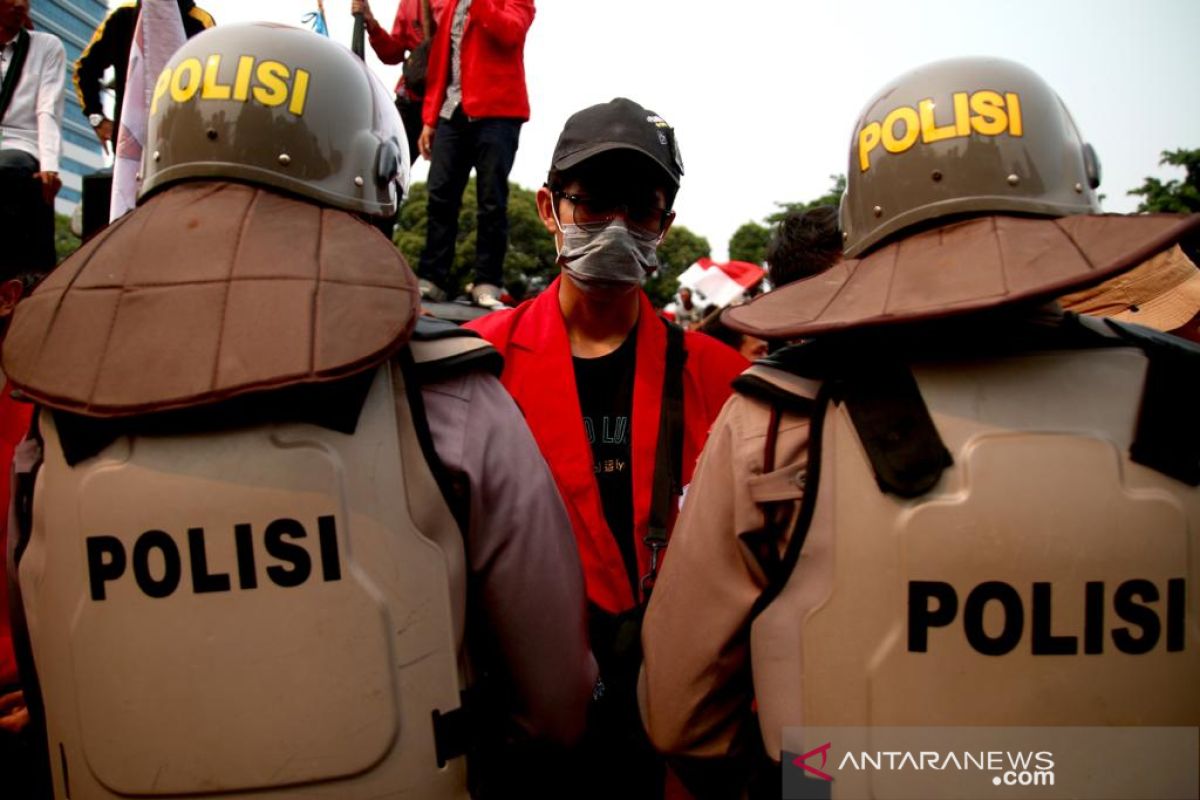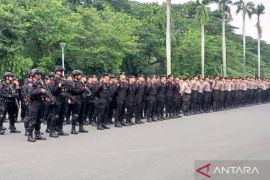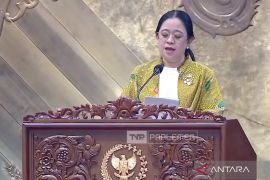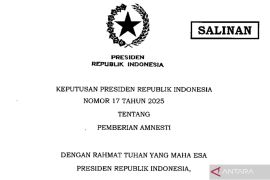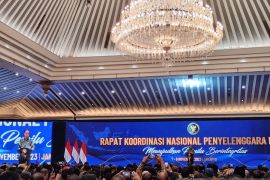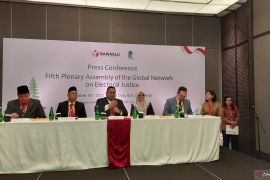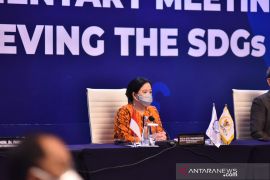The university students, the young protesters, who joined the strikes, delivered a clear message that they have idealism and are brave enough to break the silenceJakarta (ANTARA) - A university students' group marched in a human chain from nearby bus stops and closest train stations to the House of Representatives' building, Jakarta, while thousands of young protesters thronged the parliamentary building for hours. The tens of thousands of young protestors, who had gathered before the parliament building for protracted hours, mostly wore all-black outfits and masks, while few unfurled some white large fabric sheets bearing messages of "ReformasiDikorupsi," or reform corrupted, at the building's main gate.
The huge crowds comprised individuals hailing from varied backgrounds, such as doctors, graphic designers, human rights advocates, journalists, videographers/photographers, and worker unions, who also went on strike with the university students in front of the Parliamentary building for nearly a week on Sept 23-30, or the last week of the 2014-2019 legislative term.
"I believe our lives begin and till the end of the day, we become silent. Now, it is time for us to demand answers from lawmakers on some controversial bills they intended to pass into laws," Maftuh, a young doctor, stated while speaking on the reason behind partaking in the strikes on Sept 24.
Maftuh and his wife, Dian, a nursing student, took part in the strikes since on that day, the lawmakers were scheduled to pass the disputed new penal code bill into law.
"There are at least 18 problematic articles in the bill. Some of the articles, I believe, may impinge upon our freedom of speech and expression. Moreover, I could not understand the reasons behind some rules that attempt to regulate our private lives," he stated during the protest.
For the newly wed, in their mid-20s, the strikes were the only actions for channeling their frustrations toward lawmakers.
"At the end of their tenures, the parliamentary members surprise us with the new penal code bill. The bill contains some vague articles that may criminalize health workers, as they provide sex education and birth control to young people," Dian stated.
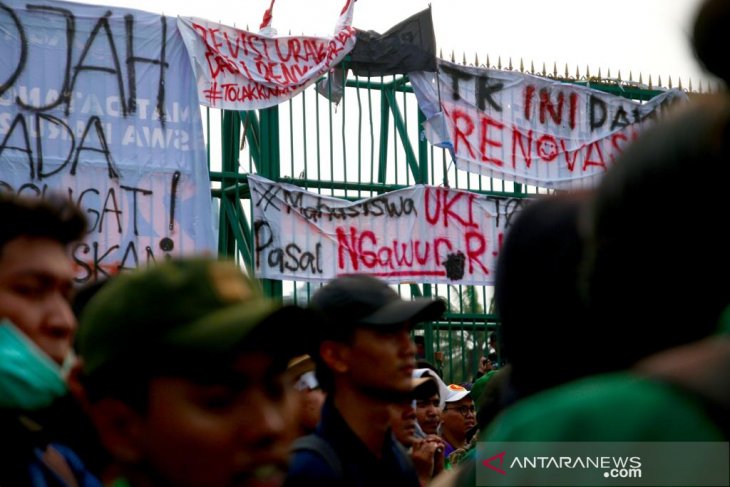
Maftuh and Dian, as well as thousands of young protesters, who marched in Jakarta and other large cities, such as Yogyakarta, Bandung, and Kendari, were part of Indonesia's #ReformasiDikorupsi youth movement, a nationwide campaign aimed at safeguarding the basic freedom and civil rights enjoyed by people for over two decades after the fall of the Authoritarian New Order regime in 1998.
For the democracy and human rights watchdog KontraS, the #ReformasiDikorupsi and student protests in September marked the rebirth of Indonesia’s youth movement that had been in a long, deep slumber after the 1998 activists toppled the late New Order’s Soeharto.
“The university students, the young protesters, who joined the strikes, delivered a clear message that they have idealism and are brave enough to break the silence,” Rivanlee Anandar, the watchdog’s research, observation, and documentation head of staff, remarked.
After 1998, the country’s youth movement went on a hiatus, as the students were more occupied in classes and less on the discussion pertaining to current social issues since most universities imposed curfew at the college’s buildings and libraries, restricted student informal activities, and charged students with high tuition fees, Anadar remarked.
He believed that some rules had shaped students to become more ignorant or less responsive to social issues.
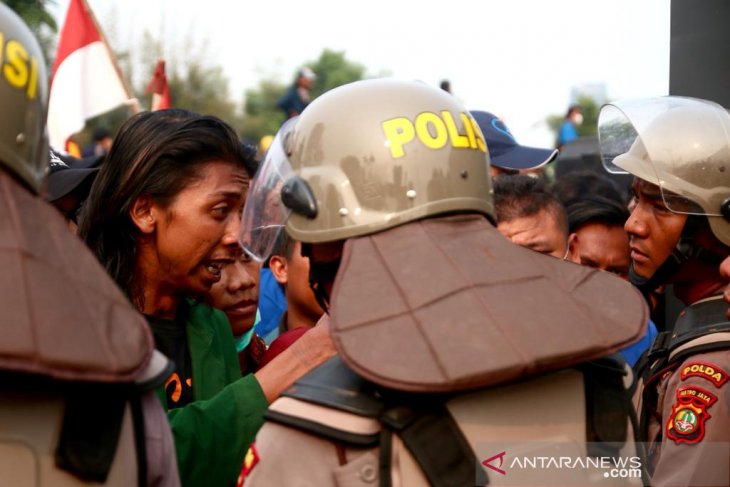
However, the trend had changed after September 2019, with Indonesia's young protesters becoming a new ray of hope for the country’s democratic system that was currently under threat, as the ruling power appeared to play with the oligarch's playbook.
Anandar and thousands of young protesters believe that the problematic bills, deferred to be passed into laws, might aim to back the oligarch's practices under the country's democracy system.
"The laws turn into political commodities, and the people's demands were easy to put aside (by the ruling power)," he noted.
For the last few months, unrest by young protesters seemed to be rife everywhere. Not only restricted to some of Indonesia’s large cities, the anti-regime protests also surfaced in Hong Kong, Baghdad, Quito, Santiago, Beirut, and India’s Kashmir.
Despite the cities located far off from each other, the protests were fueled by similar triggers: a democracy controlled by the elitist, followed by some problematic bills that may hurt the interests of the middle-working class, and impinge upon the people’s freedom and civil rights.
However, for some regions, the unrests were incited by the economic slowdown and inequality gap between the haves and the have nots.
929 Global Rallies against totalitarianism. Hong Kong stands with Indonesia.#ReformasiDikorupsi pic.twitter.com/y67TLNdJek
— Johnson Yeung 楊政賢???? (@hkjohnsonyeung) September 29, 2019
In spite of the differences, young protesters worldwide extend their support and solidarity toward the movement through words, murals, and pictures posted on social media platforms, such as Twitter and Facebook.
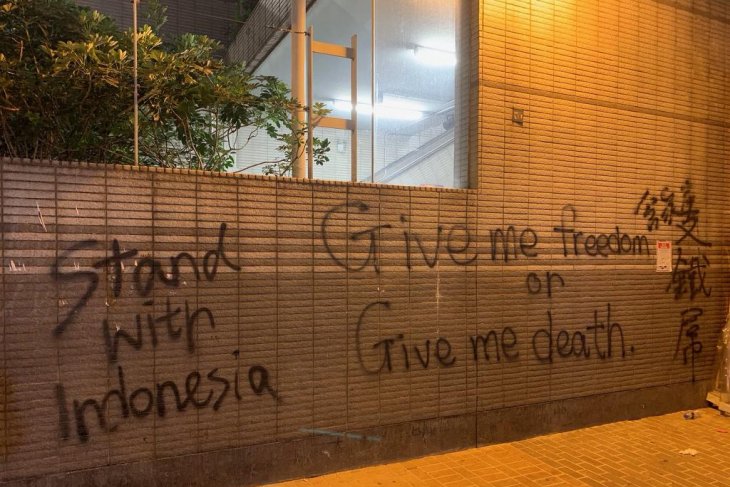
EDITED BY INE
Editor: Fardah Assegaf
Copyright © ANTARA 2019
